There are many awards that are given out to celebrate our engineering community. Below are some of the awards that will be given out this year.
Robert Henry Thurston Lecture Award
Wednesday, November 18th at 6:00 PM – 7:00 PM ET
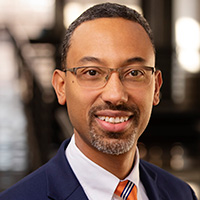
The Robert Henry Thurston Lecture, established in 1925 in honor of ASME’s first president, provided an opportunity for a leader in pure and/or applied science or engineering to present to the Society a lecture on a subject of broad interest to engineers. The Thurston Lecture was elevated to a Society award in 2000.
Awardee: Andrew Alleyne, Ph.D., Ralph M. and Catherine V. Fisher professor at the University of Illinois at Urbana–Champaign
Title: A Systems Approach to Electrified Mobility
Abstract: We live in an increasingly electrified world. For stationary applications such as industry and manufacturing, this statement has been obvious since the start of the 20th century as steam and belt drives in factories gradually gave way to electric motors for machining, conveyor lines, and all manner of other industrial applications. For domestic stationary applications, modern conveniences blossomed as electrification grew starting in the middle of the 20th century. Lighting, air-conditioning, cooking and cleaning, as well as many types of in-home entertainment were fueled by growing abilities to provide relatively cheap electrical power over long distances.
Now, a fifth of the way through the 21st century, we are seeing electrification rise in the mobile domain. The progress has been steady for several decades but it is really during the past several years that electrified mobility has seen a rapid growth at the level of individual consumer. Interestingly, this growth cuts across widely varying modes of mobility; from individual bicycles to on-highway vehicles to large ships and aircraft.
This talk will detail some of the trends in mobility domains and will discuss some of the technical challenges. For mobility systems, the power density is a key metric of performance that dictates viability of technology for use in the transport of goods and people. Of high relevance to an ASME audience, we will discuss the interplay between modes of power distribution within electrified mobility systems. This includes the flow of power in the mechanical, electrical, and thermal domains. Several examples of challenges will be raised along with some solutions and open questions across the broad spectrum of Mechanical Engineering fields. In particular, we will demonstrate examples where the integration of different fields, in a systems-level approach, can afford significant advantages in power density.
Bio: Andrew Alleyne, Ph.D., Ralph M. and Catherine V. Fisher professor at the University of Illinois at Urbana–Champaign, is honored for the innovative application of systems and controls tools to meet a broad array of societal needs including energy and power systems, manufacturing systems and transportation systems.
With Illinois since 1994, Dr. Alleyne is also the director of the National Science Foundation Engineering Research Center for Power Optimization for Electro-Thermal Systems.
Track 1: Acoustics, Vibration, and Phononics
Per Bruel Gold Medal for Noise and Acoustics
Sponsored by the Noise Control and Acoustics Division
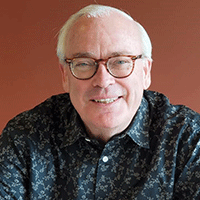
The Per Bruel Gold Medal for Noise Control and Acoustics is given in recognition of eminent achievement and extraordinary merit in the field of noise control and acoustics. The achievement must include useful applications of the principles of noise control and acoustics to the art and science of mechanical engineering.
Awardee: J. Stuart Bolton, Ph.D., Professor of Mechanical Engineering, Purdue University
Bio: J. Stuart Bolton, Ph.D., a professor of mechanical engineering at Purdue University in West Lafayette, Ind., is recognized for seminal and far-reaching contributions to the field of acoustics and noise control engineering through research, education, service to the technical com-munity and industrial engagement.
Since joining the faculty at Purdue in 1984, Dr. Bolton has maintained an active research program at the Ray W. Herrick Laboratories. He has published more than 100 archival journal articles, made over 200 conference presentations and supervised more than 100 graduate students.
Rayleigh Lecture
Sponsored by the Noise Control and Acoustics Division
Tuesday, November 17th at 6:15 PM – 7:00 PM ET
The Rayleigh Lecture award is given to an individual who has made pioneering contributions to the sciences as well as application to industry.
Awardee: K. W. Wang, Stephen P. Timoshenko Professor of Mechanical Engineering, University of Michigan
Title: Vibration and Noise Control Harnessing Reconfigurable Modular Metastructures
Abstract: In recent years, new concepts have been explored to develop adaptive metastructures based on reconfigurable modular architectures. In one investigation, we study the idea of creating engineered materials and structures from synergistically assembling and controlling metastable modules (modules that exhibit coexistent stable states under the same topology) and uncover their mechanics and nonlinear dynamics behaviors due to metastability and multistability. Results show that such multifunctional metastructures yield significant adaptivity via modular reconfiguration, which would achieve numerous globally stable topologies, large variations in damping and stiffness, and tunable nontraditional wave propagation characteristics. In another study, building upon the architecture of origami, multifunctional adaptations are uncovered and explored for the control of structural shape, stiffness, energy absorption, nonlinear dynamics and vibration, acoustic band structures and noise transmissions. These unique characteristics are realized utilizing ideas such as fluidic-induced transformation and multistability, and lattice symmetry transformation in origami modular metastructures. This presentation will discuss some of the recent research innovations and possible future directions and opportunities in synthesizing reconfigurable adaptive modular metastructures for structural vibration and acoustic control advancements.
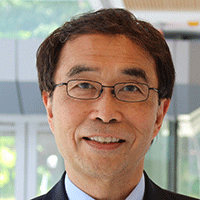
Bio: Kon-Well Wang is the Stephen P. Timoshenko Professor of Mechanical Engineering (ME) at the University of Michigan (U-M) in Ann Arbor, MI, U.S.A. He received his Ph.D. degree from the University of California at Berkeley, worked at the General Motors Research Labs, and started his academic career as a faculty at the Pennsylvania State University in 1988. At Penn State, Wang has served as the William E. Diefenderfer Chaired Professor, Associate Director of the Vertical Lift Research Center of Excellence, and Group Leader for the Center for Acoustics and Vibration. Wang joined the U-M ME in 2008 as the Stephen P. Timoshenko Professor. He served as the ME Department Chair at U-M from 2008 to 2018. He is on an Intergovernmental Personnel Act rotator appointment as a Division Director at the National Science Foundation since January 2019. Wang’s technical interests are in the emerging areas of structural dynamics, including metastable & multi-stable metastructures, origami dynamics, and adaptive structural systems, with applications in vibration & noise controls. He has received various recognitions, such as the Pi Tau Sigma-ASME Charles Russ Richards Memorial Award, the ASME J.P. Den Hartog Award, the SPIE Smart Structures and Materials Lifetime Achievement Award, the ASME Adaptive Structures and Materials Systems Prize, and the ASME N.O. Myklestad Award. He has been the Chief Editor for the ASME Journal of Vibration & Acoustics, and is an Editorial Advisory Board Member for the Journal of Sound and Vibration. Wang is a Fellow of the ASME, AAAS, and IOP.
Track 3: Advanced Materials: Design, Processing, Characterization and Applications
Sponsored by the Materials Division
Nadai Medal
The Nadai Medal is awarded in recognition of significant contributions and outstanding achievements which broaden the field of materials engineering. Such achievements may be, for example, in the areas of education, research, development, and service to the field and profession. The Nadai Medal was established in 1975 on the proposal of the Materials Division to honor Arpad L. Nadai, who was a pioneer in the field of engineering materials, contributing particularly to the area of plasticity. His perspective also enabled him to give strong impetus to development in fatigue and high temperature behavior.
Awardee: Frank Zok, University of California, Santa Barbara
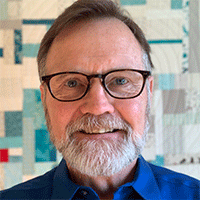
Bio: Frank W. Zok is Distinguished Professor of Materials at the University of California, Santa Barbara. He serves as Director of the Pratt & Whitney Center of Excellence in Composites and the IHI Turbine Materials Research Center, both at UCSB. He is a Fellow of the American Ceramic Society. He earned B.E.Sc. and M.E.Sc. degrees from the University of Western Ontario and his Ph.D. from McMaster University, Canada, all in Materials Engineering. He has been on the UCSB faculty since 1990. His current research activities focus on high-temperature ceramic composites for use in future propulsion systems in aircraft engines and in hypersonic flight vehicles, protection systems for mitigating blast and ballistic threats, and lightweight lattice structures with high strength and straining capability. He has published over 200 articles. He has been active in the professional community, serving as Associate Editor of the Journal of the American Ceramic Society for over 25 years, on several National Academies studies and review panels, and as Chair of the Scientific Advisory Board for the Canada Magnesium Network.
Sia Nemat-Nasser Early Career Award
The Sia Nemat-Nasser Early Career Award recognizes early career research excellence in the areas of experimental, computational, and theoretical mechanics and materials by young investigators who are within 10 years after their Ph.D. degree, with special emphasis placed on under-represented groups. The award was established by the by the Materials Division in 2008 and operated as a division award until 2012 when it was elevated to a Society award.
Awardee: Baoxing Xu, University of Virginia, Charlottesville
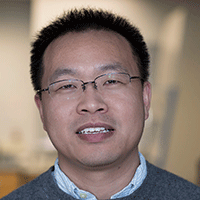
Bio: Dr. Baoxing Xu is currently an Associate Professor in the Department of Mechanical and Aerospace Engineering at The University of Virginia (UVa). He received his B.S. degree in Engineering Mechanics and M.S. degree in Solid Mechanics from Northwestern Polytechnical University of China in 2004 and 2007, respectively, and PhD in Mechanics and Materials from Columbia University in 2012. Prior to joining the faculty at UVa in the fall of 2014, he was a Beckman Postdoctoral Fellow at the University of Illinois at Urbana-Champaign from 2012 to 2014. Dr. Xu’s research interests are focused on multiscale-multiphysics mechanics driven extreme design and manufacturing of functional materials, structures and devices, in particular, heterostructures, porous structures, solid-liquid functionalized materials, soft-hard material integrated systems, and flexible devices and structures.
Orr Early Career Award
Established in 2004, the ASME ORR Early Career Award was donated by the Orr family and consists of a $3,000 honorarium and certificate. It is given annually at IMECE by the Orr Family through the Materials Division of ASME to recognize early career research excellence in the areas of experimental, computational, or theoretical fatigue, fracture, or creep.
Awardee: Kedar Kirane, Stony Brook University
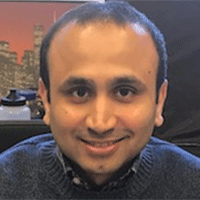
Bio: Prof. Kedar Kirane is an assistant professor of mechanical engineering at Stony Brook University (SUNY) in New York, USA. His research focuses on understanding the fatigue, fracturing and scaling behavior of various conventional and advanced composite materials. These include fiber reinforced composites, nanocomposites, geological materials, concrete, and polycrystalline alloys. Prof. Kirane obtained his Ph.D. in 2014 from Northwestern University and joined the Mechanical Engineering faculty at Stony Brook University in Sept 2017. He also holds an M.S. degree from the Ohio State University (2007) and a B.S from the University of Pune, India (2004), both in mechanical engineering. Prior to joining Stony Brook, Prof. Kirane worked as a senior researcher at the ExxonMobil Upstream Research Company and has also held a development engineer position at Goodyear Tire & Rubber company in the Engineering Mechanics group. He is a member of ASME and EMI (ASCE). He serves on the Computational Mechanics and Modeling Inelastic Behavior of Materials committees of EMI (ASCE). He also serves as a reviewer for many prestigious international journals. He is the recipient of DOD Army Research Office’s Young Investigator award in 2019 and ASME AMD’s Haythornthwaite Research Initiation Grant in 2018 for proposing promising work in the field of fracture and scaling of advanced composite materials.
Orr Early Career Award
Established in 2004, the ASME ORR Early Career Award was donated by the Orr family and consists of a $3,000 honorarium and certificate. It is given annually at IMECE by the Orr Family through the Materials Division of ASME to recognize early career research excellence in the areas of experimental, computational, or theoretical fatigue, fracture, or creep.
Awardee: Yan Li, Dartmouth College
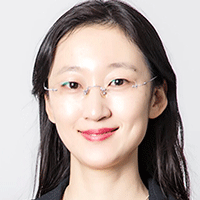
Bio: Dr Yan Li joined the Thayer School of Engineering at Dartmouth College in January 2020. Prior to that appointment, she was an Assistant Professor in the Department of Mechanical and Aerospace Engineering at California State University, Long Beach from 2014 to 2018. Dr. Li received her PhD degree in Mechanical Engineering from Georgia Institute of Technology in 2014. Her primary research interests are in the area of mechanics of advanced materials, involving multiscale/multiphysics modelling, integrated computational/experimental approaches for next generation material design, and application of material science and solid mechanics in advanced manufacturing. Dr. Li has worked on research projects supported by the US Army Research Laboratory, Sandia National Laboratories, NSF NH-BioMade Center, NSF CCMD (Center for Computational Materials Design) and collaborated with industry partners including Boeing, Gulfstream and GE. She is the recipient of ASME ORR Early Career Award in 2020, Best Paper Award of the 8th International Conference on Computational Methods in 2018, WAC Teaching Writing Fellow at Cal State Long Beach in 2017, Professors around the world at Cal State Long Beach in 2016, and multiple NSF travel awards for leadership and career development.
Track 8: Energy
Frank Kreith Energy Award
The Frank Kreith Energy Award was established in 2005 to honor an individual for significant contributions to a secure energy future with particular emphasis on innovations in conservation and/or renewable energy. The award was established by the Solar Energy and Advanced Energy divisions to honor Dr. Frank Kreith’s contributions to solar energy and heat transfer.
Awardee: Petros Sofronis, University of Illinois at Urbana–Champaign
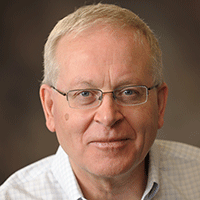
Bio: Petros Sofronis, Ph.D., James W. Bayne professor of mechanical science and engineering at the University of Illinois at Urbana–Champaign; and director of the International Institute for Carbon-Neutral Energy Research (I2CNER), is honored for catalyzing international academic and industrial research collaborations on underlying renewable energy technologies; and for significant contributions to the advancement of understanding and mitigating materials degradation in gaseous hydrogen environments such as pipeline steels.
Since 2010 Dr. Sofronis has led I2CNER, co-hosted by Kyushu University in Japan and the University of Illinois, and funded by the World Premier International Research Initiative of Japan. Currently he is working to establish the Midwest Hydrogen and Fuel Cell Coalition, a partnership between Argonne National Laboratory and Illinois.
Edward F. Obert Award
The Edward F. Obert Award was established in 1987 by the Advanced Energy Systems Division to recognize an outstanding paper on thermodynamics. It was elevated to a Society award in 1996.
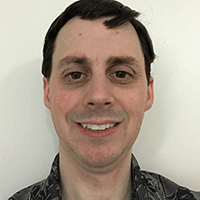
Awardee: Henry A. Long III
Bio: Henry A. Long III, Ph.D., a senior engineer at KeyLogic Systems, Inc. in Pittsburgh; and Ting Wang, Ph.D., a professor in the department of mechanical engineering at The University of New Orleans, are recognized for the paper titled "Performance of an Integrated Mild/Partial Gasification Combined (IMPGC) Cycle With Carbon Capture in Comparison With Other Power Systems." Dr. Long was a research assistant under Dr. Ting Wang for his master’s degree; under Dr. Wang’s mentorship, he went on to publish more than a dozen papers. In his current position Dr. Long supports the National Energy Technology Laboratory as an employee under the Mission Execution and Strategic Analysis contract.
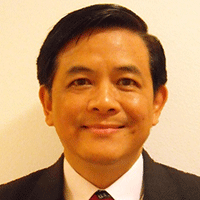
Awardee: Ting Wang
Bio: Dr. Wang is also the director of the Energy Conversion and Conservation Center, and Matthey endowed chair for energy research. Prior to joining UNO, he taught for 15 years at Clemson University in South Carolina. Dr. Wang has been involved in energy conservation and power generation in full spectrum for the past 40 years.
Track 11: Heat Transfer and Thermal Engineering
Bergles-Rohsenow Young Investigator Award in Heat Transfer
Sponsored by the Heat Transfer Division
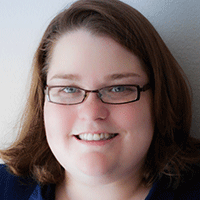
The Bergles-Rohsenow Young Investigator Award in Heat Transfer is given to a young engineer that is under 36 years of age and has received a Ph.D. or equivalent degree in Engineering. The individual must be committed to pursuing research in heat transfer, and must have demonstrated the potential to make significant contributions to the field of heat transfer. Such contributions may take the form of, but are not limited to, analytical/numerical methods, equipment/instrumentation, or experimentation - any of which should lead to peer-reviewed publications. This year’s Bergles-Rohsenow Young Investigator Award is given to Prof. Amy Marconnet, Associate Professor of Mechanical Engineering at Purdue University, for the development of a creative, interdisciplinary approach to evaluate, understand and control the physical mechanisms governing the thermal transport properties of materials, machines and systems.
Heat Transfer Memorial Awards
Sponsored by the Heat Transfer Division
The Heat Transfer Memorial Award is bestowed on individuals who have made outstanding contributions to the field of heat transfer through teaching, research, practice, design, service, leadership, inventions, or a combination of such activities. Recipients of this year’s Heat Transfer Memorial Awards are:
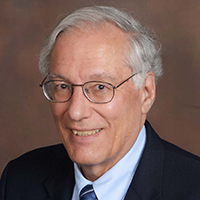
Science: Prof. Terrence W. Simon, Ernst G. Eckert Professor of Mechanical Engineering, Department of Mechanical Engineering, University of Minnesota, for widely acclaimed seminal studies on turbulent flow in transitioning boundary layers and pressure gradients; and for excellence in experimental technique.
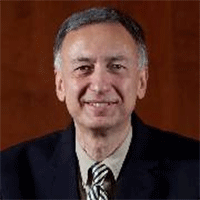
Art: Prof. Bahgat Sammakia, Distinguished SUNY Professor and Vice President of Research, Binghamton University State University of New York, for contributions to innovations in green data centers, particularly as director of the Center for Energy-Smart Electronic Systems, a National Science Foundation industry–university cooperative research center; and for contributions to flexible electronics and electronics packaging, particularly as director of the Small Scale Systems Integration and Packaging Center at Binghamton University in New York.
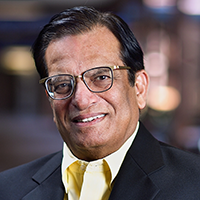
General: Prof. Vishwanath Prasad, Professor, Department of Mechanical and Energy Engineering, University of North Texas, for exceptional contributions to the heat transfer community and ASME’s Heat Transfer Division as chair of technical committees, organizer and chair of national and international conferences, and editor/associate editor of proceedings, journals and book series; and for outstanding leadership in international collaborations.
George Westinghouse Medals
The George Westinghouse Medals were established to recognize eminent achievement or distinguished service in the power field of mechanical engineering to perpetuate the value of the rich contribution to power development made by George Westinghouse, honorary member and 29th president of the Society. The Gold Medal was established in 1952 and the Silver Medal in 1971.
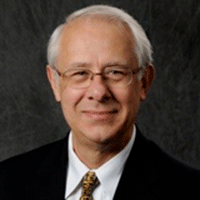
Awardee: Darrell W. Pepper – GOLD
Bio: Darrell W. Pepper, Ph.D., a professor of mechanical engineering at the University of Nevada, Las Vegas, is honored for exemplary achievements in the areas of power associated with wind energy, advanced engine combustion modeling, energy savings and advanced computational methods.
With UNLV since 1992, Dr. Pepper is founder and former director of the Nevada Center for Advanced Computational Methods. He has published over 350 technical papers and six books.
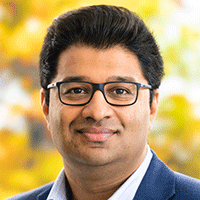
Awardee: Sibendu Som – SILVER
Bio: Sibendu Som, Ph.D., a principal computational scientist and manager of the multi-physics computational research section at Argonne National Laboratory in Illinois, is recognized for pioneering the implementation of machine learning tools and high performance computing techniques, and developing predictive submodels for high-fidelity simulations of power and propulsion systems, which are routinely used by industry to dramatically reduce product design time.
Dr. Som has more than a decade of experience in multi-physics and multi-scale modeling of piston engines and gas turbines on high performance computing systems. He is a co-founder of Argonne’s Virtual Engine Research Institute and Fuels Initiative program.
Track 12: Mechanics of Solids, Structures and Fluids
Nancy DeLoye Fitzroy and Roland V. Fitzroy Medal
Sponsored by the Applied Mechanics Division
The Nancy DeLoye Fitzroy and Roland V. Fitzroy Medal, established in 2011, recognizes pioneering contributions to the frontiers of engineering that have led to a breakthrough in existing technology, or to new applications or new areas of engineering endeavor.
Awardee: John A. Rogers, Louis Simpson and Kimberly Querrey Professor of Materials Science and Engineering, Biomedical Engineering and Neurological Surgery (and by courtesy Electrical and Computer Engineering, Mechanical Engineering, and Chemistry)
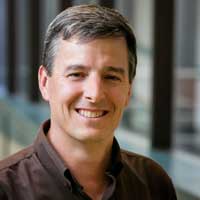
Bio: Professor John A. Rogers obtained BA and BS degrees in chemistry and in physics from the University of Texas, Austin, in 1989. From MIT, he received SM degrees in physics and in chemistry in 1992 and the PhD degree in physical chemistry in 1995. From 1995 to 1997, Rogers was a Junior Fellow in the Harvard University Society of Fellows. He joined Bell Laboratories as a Member of Technical Staff in the Condensed Matter Physics Research Department in 1997, and served as Director of this department from 2000 to 2002. He then spent thirteen years on the faculty at University of Illinois, most recently as the Swanlund Chair Professor and Director of the Seitz Materials Research Laboratory. In the Fall of 2016, he joined Northwestern University as the Louis Simpson and Kimberly Querrey Professor of Materials Science and Engineering, Biomedical Engineering and Medicine, with affiliate appointments in Mechanical Engineering, Electrical and Computer Engineering and Chemistry, where he is also Director of the recently endowed Querrey Simpson Institute for Bioelectronics. He has published more than 750 papers, is a co-inventor on more than 100 patents and he has co-founded several successful technology companies. His research has been recognized by many awards, including a MacArthur Fellowship (2009), the Lemelson-MIT Prize (2011) and most recently the Benjamin Franklin Medal (2019). He is a member of the National Academy of Engineering, the National Academy of Sciences, the National Academy of Medicine, the National Academy of Inventors and the American Academy of Arts and Sciences.
Koiter Lecture
Sponsored by the Applied Mechanics Division
Tuesday, November 17th at 6:00 PM – 6:50 PM
Lecturer: Anthony M. Waas, Felix Pawlowski Collegiate Professor and Richard A. Auhll Department Chair, Department of Aerospace Engineering, University of Michigan, Ann Arbor
Title: On Developing Validated Models for Progressive Damage and Failure of Fiber Reinforced Laminates
Abstract: High-strength and high-stiffness carbon fiber-reinforced polymer composite laminates (CFRP) are being increasingly used for primary load bearing structures in many industries. The most common material system used is based on thermoset resins (matrix material), which come in the form of convenient prepreg tapes allowing high flexibility and productivity using advanced automated manufacturing technologies. Engineers must provide mechanics based models for the deformation response and failure of these materials and structures. The mechanisms responsible for progressive damage accumulation and failure are (intralaminar) matrix cracks, which can lead to delamination initiation and spreading resulting in ultimate failure. Interlaminar fracture in CFRP, often called delamination, is defined as an out-of-plane discontinuity between two adjacent plies of a laminate. Delamination behavior has been studied by many researchers and now can be characterized in a standardized manner. Fracture properties of Mode I, Mode II, and mixed-mode (between Mode I and Mode II) delamination can be obtained from ASTM standard tests in conjunction with finite element analysis (FEA). In a CFRP structural component, the intralaminar and interlaminar modes of failure interact and developing a computational model to accurately replicate the failure mechanisms and their interaction has been challenging. In this presentation, a series of experimental results that delineate the different mechanisms of failure will be presented. Based on these results, associated mechanics models will be presented, resulting in a progressive damage and failure modeling framework that can be used for assessing the structural integrity and damage tolerance of CFRP aerospace structures.
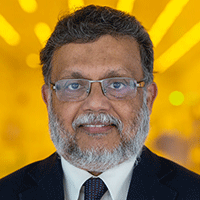
Bio: Anthony M. Waas is the Richard A Auhll Department Chair of Aerospace Engineering at the University of Michigan, Ann Arbor where he holds the Felix Pawlowski Collegiate Chair. Prior to that he was the Boeing Egtvedt Endowed Chair Professor and Department Chair in the William E. Boeing Department of Aeronautics and Astronautics at the University of Washington (UW), Seattle. His current research interests are: computational modeling of lightweight composite structures, robotically manufactured aerospace structures, 3D printed structures, damage tolerance of structures, mechanics of textile composites, and data science applications in structural mechanics. Professor Waas was the Felix Pawlowski Collegiate Chair Professor of Aerospace Engineering and Director, Composite Structures Laboratory at the University of Michigan, from 1988 to 2014, prior to joining UW in January 2015. He assumed is current position in Fall 2018. Professor Waas is a Fellow of the American Institute of Aeronautics and Astronautics (AIAA), the American Society of Mechanical Engineering (ASME), the American Society for Composites (ASC), the American Academy of Mechanics (AAM) and the Royal Aeronautical Society, UK. He is a recipient of several best paper awards, the 2016 AIAA/ASME SDM award, the AAM Jr. Research Award, the ASC Outstanding Researcher Award, and several distinguished awards from the University of Michigan, including the Stephen S. Attwood award for Excellence in Engineering, one of the highest honors for an Engineering faculty member at the University of Michigan. He received the AIAA-ASC James H. Starnes, jr. Award, 2017, for seminal contributions to composite structures and materials, and for mentoring students and other young professionals. In 2017, Professor Waas was elected to the Washington State Academy of Sciences, and in 2018 to the European Academy of Sciences and Arts. He is also the recipient of the AIAA ICME Prize, 2019.
Track 14: Safety Engineering, Risk and Reliability Analysis
Safety Innovation Challenge Student Contest
Sponsored by the Safety Engineering & Risk Analysis Division
There are two levels of graduate and undergraduate contests and two winners are selected from each category. A monetary award along with a wood plaque are presented to all winners during a dinner reception. The division pays for the dinner and travel cost for the winners. Each winner has 5 minutes to present their research during the dinner.
Best Paper Award for ASME Journal of Risk and Uncertainty in Engineering Systems
Sponsored by the Safety Engineering & Risk Analysis Division
The winner is selected from the best paper among the published papers of previous year and a monetary award is presented along with a wood plaque during a dinner reception. The division pays for the dinner and travel cost for the winner. The winner has 5 minutes to present their research during the dinner.